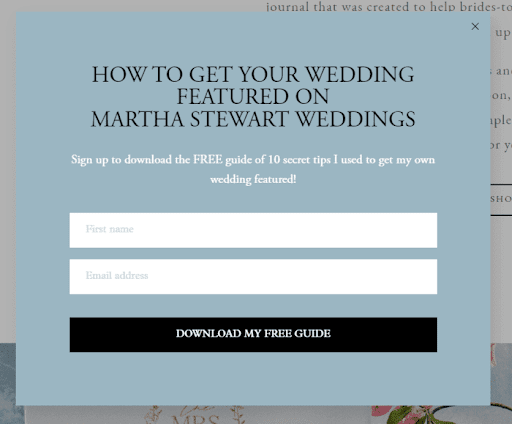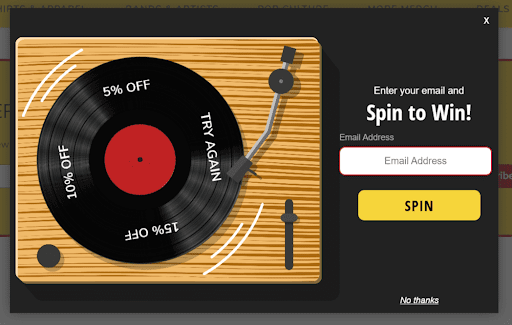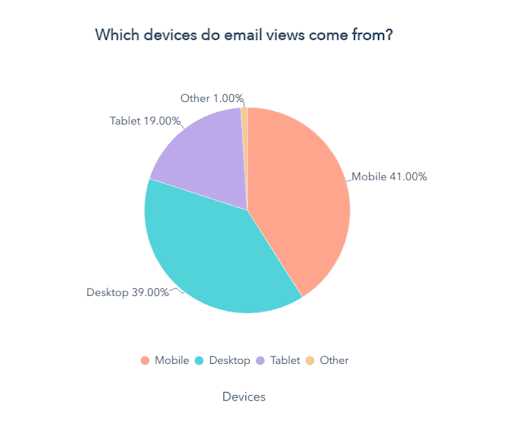Email is a very profitable marketing channel for most businesses. And if you're not already using email as one of your marketing mediums, you're missing out on a lot of sales and revenue.
In fact, the return of investment (ROI) of email marketing is a remarkable $36 for every $1 spent.
The good thing is that navigating the email space doesn’t have to be overwhelming. With the right email marketing strategy, you can leverage this powerful channel to connect with your audience, build lasting relationships, and drive significant growth.
With that in mind, we’ll share five practical email marketing tips to help you take your small business to the next level.
1. Identify Goals and Choose Email Marketing Software
The first step to growing your business is to identify the goals you want to achieve through email marketing. Do you want to increase sales? Build brand awareness? Retain customers?
This will give you a good idea of what to look for in an email marketing solution.
Once you identify your goals, the next step is to research and compare various email marketing platforms and choose one that aligns with your objectives.
Consider factors like automation, pricing, scalability, and customer support, as these can impact your business growth significantly. For instance, an overpriced solution can strain your budget and divert funds from other crucial areas of your business. However, a cost-effective email platform will help you allocate resources efficiently and ensure sustained growth.
Other essential features to look for include:
- Data-informed segmentation: The platform should help you group email subscribers based on their preferences and behavior. This way, you can send relevant and personalized emails that resonate with them.
- High email deliverability rates: A good deliverability rate means more of your messages will reach your subscribers' inboxes rather than go to a spam folder.
- Integration with other business tools: These may include time management software like RoundPie or ecommerce platforms like Shopify. Seamless integration automatically syncs all your customer data, streamlining your marketing efforts.
- Advanced email analytics: Access to metrics like open rates, click-through rates, and conversions can help you monitor your email marketing campaign and improve it.
2. Build a Quality Email List
After you pick an email marketing solution that aligns with your business needs, the next step is to build a good email list. The best way to do so is by using popup forms on your website to collect visitors’ email addresses. You can add incentives such as discounts or free resources to encourage users to sign up.
As you do so, ensure they are easy to fill out with just a few (or even one) required fields. People prefer straightforward processes, and forms with many fields can annoy users and discourage them from signing up.
Here’s an example of a compelling popup:

Another way to encourage more signups is to use spin-to-win popups. The popups’ interactive and gamified elements attract visitors and encourage them to interact with your website longer. As a result, they give their email addresses just to win a prize but eventually join your subscriber list. It’s a win-win.
Here’s a brilliant spin-to-win popup example:

As users sign up to your email list, implement a double opt-in process to confirm their intentions. You don’t want a subscriber list full of fake emails, which can affect your sender reputation. Double opt-in also ensures you have a more engaged and committed audience. Alternatively, you can perform real-time email verification to prevent fake email sign-ups or spam form submissions, ensuring a strong email list.
In addition, track your opens and click-throughs to identify subscribers who haven’t interacted with your messages for a long time. Then, remove them from your email list. This will significantly improve email deliverability and engagement rates.
3. Personalize Your Email Marketing Campaigns
Most shoppers desire personalized experiences. They want you to treat them as unique individuals, not part of a large audience. That's why 59% of buyers think brands should use the data they collect about them to personalize their experiences. And 62% prefer personalized recommendations.
Due to this, 55% of marketers want to expand their use of personalization in their email marketing campaigns in 2023.
One way to customize your emails is to segment subscribers based on their preferences and purchase behavior. This helps you send targeted messages that resonate with each customer and increases the chances of higher engagement and conversions.
For example, you can show product recommendations or personalized product offers based on a customer’s past interaction with your website. Likewise, personalize your welcome emails with exclusive discounts or acknowledge a subscriber’s special occasion with a customized birthday message to show that you value them as individuals. Additionally, you can consider using customizable poster templates to add some engaging content to your email campaigns.
Here’s an excellent example from Dutch Bros:

Moreover, you can use the recipients’ names in the email subject lines and greetings to further create a personalized touch. A customized subject line can capture readers' attention and improve open rates. In fact, emails with personalized subject lines produce 50% higher open rates.
4. Optimize Your Email Marketing Campaign for Mobile Devices
Nowadays, most people use their phones to interact with businesses on various channels, and email is no exception. Based on a HubSpot research, most marketers say that 41% of their email engagement comes from mobile devices. This is closely followed by desktops at 39%.

The good thing is that most email service providers offer these design features.
Others have mobile preview options to ensure your email appears as intended before sending it out.
5. Analyze Your Email Metrics to Improve Your Campaigns
You can only grow your business if you’re enhancing its operations. And one way to improve is to analyze your email metrics. This way, you’ll be able to understand how your previous campaign performed and what you need to do to refine your next email marketing campaign.
The best way to track your metrics is through email automation platforms that offer robust analytics and reporting features.
These tools simplify data analysis and provide valuable insights into your campaigns. For example, you can be able to:
- Monitor your open rates: This helps you gauge the effectiveness of your subject lines and overall email appeal.
- Track your click-through rates: High CTRs indicate your content is engaging and your CTAs are compelling.
- Monitor your conversion rates: This lets you know how many subscribers take your desired action after clicking on your emails. It could be buying a product, signing up for an event, or filling out a form.
- Assess your unsubscribe rates: High unsubscribe rates may indicate issues with content relevance or email frequency.
- Analyze your bounce rate: High bounce rates may indicate problems with email list quality or outdated addresses.
Create Successful Email Marketing Campaigns for Your Business
There you have it. Email can be one of the most rewarding channels for your small business. Therefore, the best time to implement it into your marketing strategy is now.
To recap, some of the best email marketing strategies to grow your business include:
- Identifying your business goals and choosing the right email marketing solution
- Building a quality email list
- Personalizing your email marketing campaigns
- Optimizing your email campaign for mobile devices
- Analyzing your email metrics to improve your campaigns
Applying these strategies will help you build successful email marketing campaigns that provide value to existing customers and keep them coming back.
About the author:
Skirmantas Venckus is a writer by day and reader by night. He hates talking about himself in the third person. He is also the growth hacker at Sender.net – the email marketing provider that is focused on user-friendliness, affordability, and utility. Here is his LinkedIn.
What would you like to know, and what would be the best way to share this information with you? What are the best tips & tricks, what workaround do you use? We'd really appreciate your insight on these ones to make our integrations better, more productive, and much more efficient. Comments, tweets are always welcome.